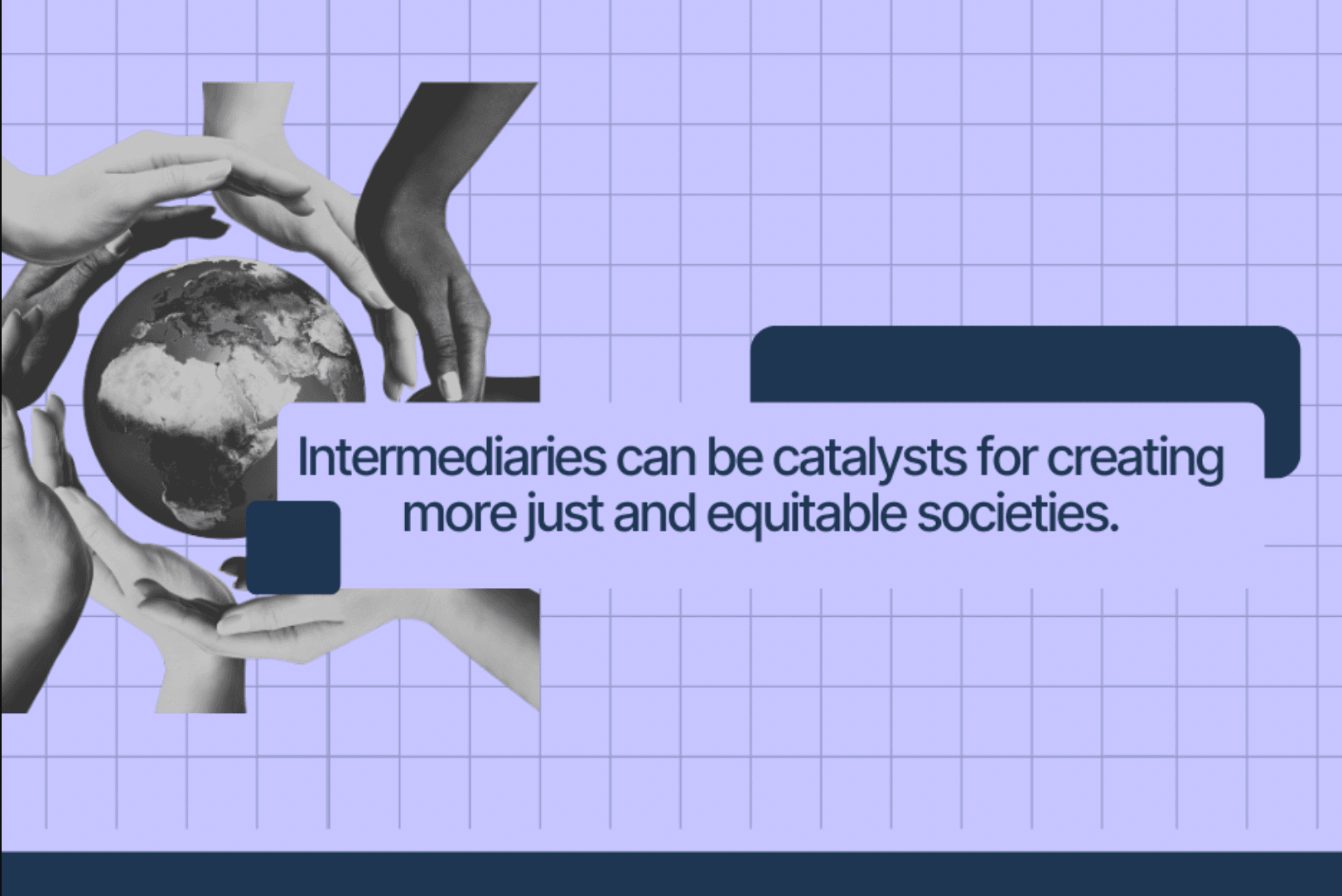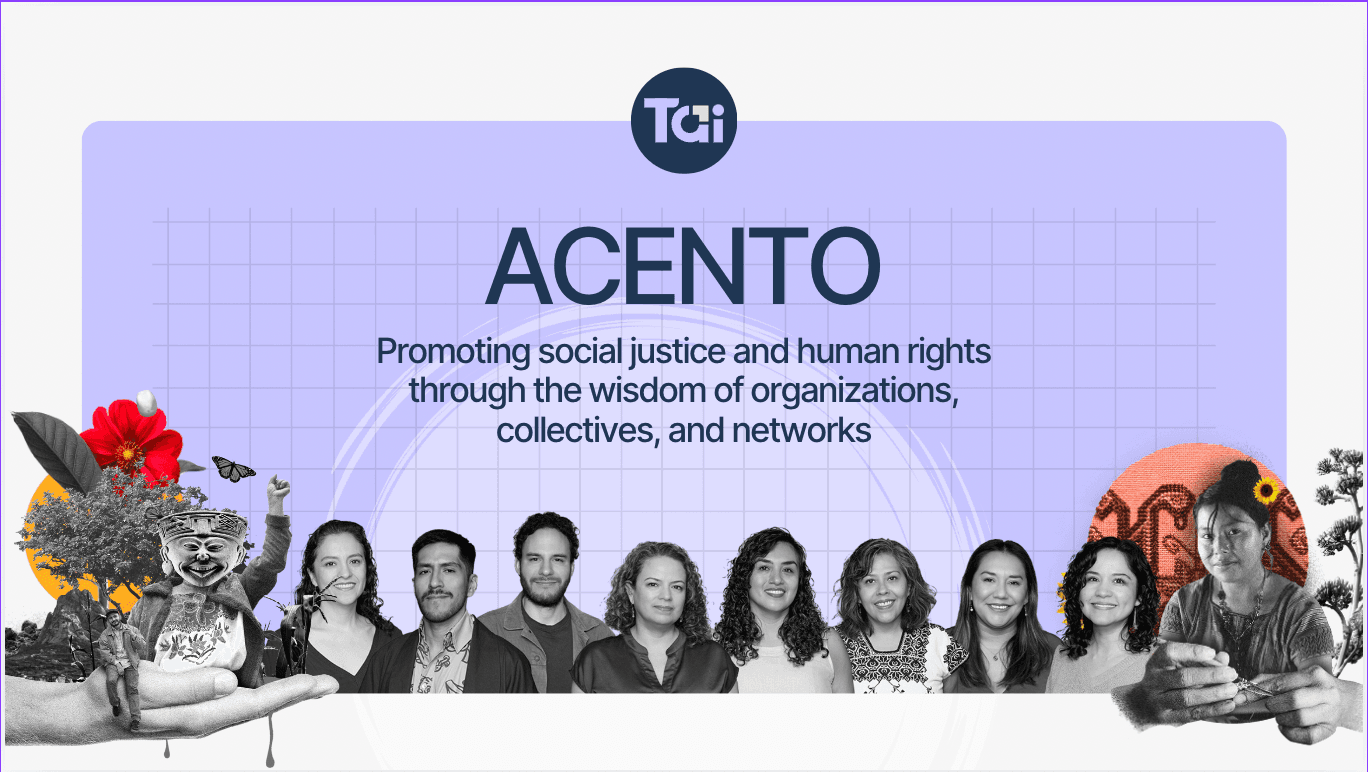“Intermediary…” Sylvia’s voice carried a sense of reluctance. “We don’t like that name. Our work and the relationships we build go far beyond being an “intermediary”. We are strategic allies, helping groups and organizations access financial and strategic resources.” Sylvia Aguilera is the Executive Director of ACENTO - a Mexican organization focused on human rights and social justice. This conversation was part of an upcoming study developed by TAI, exploring Global South-rooted intermediaries working on just and equitable governance.
Her reflection resonated with the questions and assumptions that had emerged while shaping the study: What defines “intermediaries”? What roles do they play within philanthropic and civil society ecosystems? And, crucially, what strategies are they using to advance localization efforts?
For good governance funders, the study highlights the presence of Global-South-based and rooted regranters with a strong record on relevant issues. For all funders, it provides insights on the role of intermediaries in today’s funding ecosystem and this first blog focuses on those elements.
The Context: Funding Asymmetries
While the concept of localization has long been present in the philanthropic sector, it is now gaining significant momentum. Donors increasingly recognize the need for power shifting, ensuring local actors have a voice and central role in decision-making processes. However, change has been slow. According to the OECD, over 90% of ODA funding is still routed through Global North-based organizations, reinforcing unequal power distributions and detracting localization efforts.
In this context, Global South Intermediaries (GSIs) offer a critical alternative, becoming a relevant tool in philanthropy´s toolbox (not the only one). Their proximity to local actors—culturally and geographically—makes them well-positioned to allocate funds more effectively, promote trust-based practices, and strengthen local ecosystems.
Their potential to redistribute power and bridge the gap between funders and grassroots organizations is immense. But it raises important questions: What value do GSIs add beyond fund distribution? How are they building trust, accountability, and inclusion? And what are the challenges they face in this complex ecosystem?
Global South Intermediaries In Action
We address these questions in an upcoming study that highlights the actions of six organizations: ACENTO, Africa No Filter (ANF), Fondo Acción Solidaria (FASOL), ForumCiv, a hub for Eastern and Southern Africa, Kenya Community Development Foundation (KCDF), and Women´s Rights Advancement and Protection Alternative (WRAPA).
The study will present a typology to categorize GSIs into four distinct models, shedding light on the diversity of their structures, strategies, and common challenges. Despite their differences, these organizations share a commitment to fostering local agency and promoting locally-led solutions. It is promising that many are pursuing direct collaborations with grassroots movements, striving to create a more effective and localized funding ecosystem.
The study also highlights the significant potential for shifting power dynamics if funders embrace more trust-based and flexible approaches to resource allocation. So, how can we begin to change this paradigm? What does “localization” truly mean for the future of funding? And how can we rethink accountability and trust throughout the funding chain?
These are complex but fundamental questions. It’s encouraging to see other organizations exploring these themes and asking similar questions. For instance, the Oak Foundation has commissioned a comprehensive mapping of movements, networks, and intermediaries across Africa, Latin America, the Caribbean, and Asia. This research focuses on environment, gender, social justice, and human rights covering over 100 intermediaries and showcasing the rich diversity and adaptability of these organizations.
These studies are an important step in addressing these challenges and contributing to a broader conversation within the philanthropic sector—one that urges us to acknowledge, confront, and evolve our current practices.
Learn more in the upcoming study. Beyond addressing pressing questions, it will highlight essential areas for funders to explore further in their mission to support equitable change. Don’t miss it!






